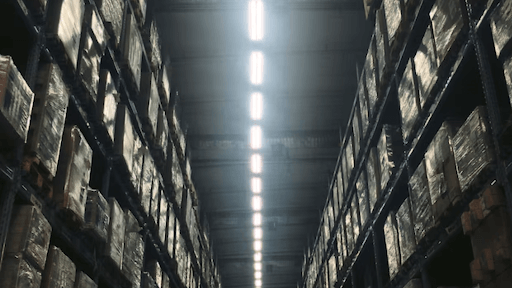When businesses need to store goods, the choice between an ordinary warehouse and a bonded service warehouse can be confusing. Many need help understanding customs regulations and duty payments, leading to unexpected costs and delays. To solve these, it’s necessary to choose the type wisely—whether partnering with bonded warehouse services or going for the ordinary one.
By allowing companies to defer duty payments until goods are withdrawn, these specialized facilities can significantly improve cash flow and streamline operations.
Let’s understand the differences and benefits of each warehouse type to help you make an informed decision.
Exploring the Basics
What is an Ordinary Warehouse?
An ordinary warehouse is a standard storage facility where businesses keep their goods. Here are some key features:
- Unrestricted Access: You can access your goods anytime without restrictions.
- Storage Flexibility: Suitable for various items, including raw materials and finished products.
- No Customs Involvement: There are no customs duties or regulations involved in storing goods.
What is a Bonded Service Warehouse?
A bonded service warehouse is a special type of facility that allows businesses to store goods under customs control. Here’s what sets it apart:
- Customs Control: Goods stored here are under the supervision of customs authorities.
- Duty Suspension: You don’t have to pay duties on items until they leave the warehouse. This can be a big cost saver.
- Compliance: This type of warehouse follows strict regulations, making it ideal for businesses importing goods.
Key Differences
Now that we know what each type of warehouse offers, let’s compare their key differences.
| Feature | Ordinary Warehouse | Bonded Service Warehouse |
| Customs Involvement | No | Yes |
| Duty Payment | Immediate | Deferred |
| Accessibility | 24/7 access | Limited by customs regulations |
| Suitable For | General storage | Imported goods |
Pros and Cons of Each Option
Ordinary Warehouse: The Pros and Cons
Pros:
- Easy Access: You can easily access your goods whenever you need them.
- Versatility: Suitable for a variety of products without the hassle of customs regulations.
- Lower Complexity: Less paperwork and fewer regulations to navigate.
Cons:
- Immediate Duty Payment: You must pay any applicable customs duties right away.
- Less Security: Without customs oversight, there may be fewer security measures in place.
Bonded Service Warehouse: The Pros and Cons
Pros:
- Duty Deferral: You can save on costs since duties are not due until goods leave the warehouse.
- Enhanced Security: Customs oversight can provide an additional layer of security for your goods.
- Control Over Inventory: Helps manage inventory for businesses that frequently import.
Cons:
- Limited Access: You may face restrictions on when you can access your goods.
- More Regulations: Requires compliance with customs regulations, which can involve more paperwork.
- Cost: Using a bonded service warehouse might have higher fees compared to ordinary warehouses.
Factors to Consider
When deciding between an ordinary warehouse and a bonded service warehouse, think about the following factors:
- Nature of Goods: If you’re storing imported goods, a bonded service warehouse might be necessary. For general storage needs, an ordinary warehouse could be sufficient.
- Financial Considerations: If cash flow is tight, the duty deferral of a bonded service warehouse could be beneficial.
- Access Needs: If you need frequent and unrestricted access to your goods, an ordinary warehouse might be the better choice.
- Regulatory Compliance: If you can handle the extra paperwork and regulations, a bonded service warehouse could offer advantages.
Conclusion: Which One is Right for You?
Choosing between an ordinary warehouse and a bonded service warehouse ultimately depends on your specific needs and circumstances. Each option has benefits and drawbacks, so weigh them carefully to find the best fit for your business.
Ordinary and bonded warehouses have their place in the world of storage. By understanding their differences and considering your unique needs, you can make a more informed choice that will help your business thrive.
For More Info Visit regulararticles



